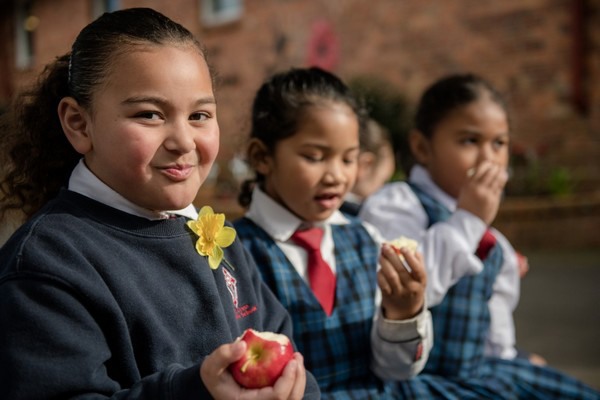Fresh fruit and vegetable deliveries to New Zealand’s lowest decile schools will resume today as our country’s most successful and effective school-based nutrition initiative gets underway for 2020.
A total of 25 million servings of fresh fruit and vegetables will be provided for 123,000 children and staff at 553 different schools nationwide this year as part of the Fruit and Vegetables in Schools (FIS) initiative.
FIS is funded by the Ministry of Health, managed by United Fresh and supported by The 5+ A Day Charitable Trust. The initiative was piloted in 2004 and rolled out to 60 participating schools in 2005 and now serves low decile primary and intermediate schools nationwide. Each child and staff member are given one piece of fresh seasonal produce to eat with their classmates daily and will try over two dozen varieties of fruit and vegetables during the school year.

United Fresh President Jerry Prendergast says a recent external evaluation of FIS found it reaches more low decile schools than any other food and nutrition health promotion initiative in New Zealand.
“It improves both health and education outcomes by ensuring all students have access to healthy food. Children who are hungry struggle to concentrate and learn so this is an ideal way to improve their overall wellbeing. The initiative is highly valued by children, principals, teachers and whānau alike.”
Prendergast says feeding hungry children is the number one benefit of FIS but the positive impact is far greater than that. Nine out of 10 participating school principals say it helps create a sense of equality between students regardless of their family circumstances, and that it’s an effective way of promoting a healthy school environment by removing stigma.
Almost all principals (94%) say it contributes to increasing students’ knowledge about nutrition and health, and 96% say it promotes positive attitudes towards eating fruit and vegetables.
“Principals report their students are more engaged with school (58%), there are fewer cases of school sores/skin infections (30%) and dental health/hygiene outcomes have improved (28%) as a result of having fresh fruit and vegetables in schools,” Prendergast says.
Deliveries are organised at no cost to schools or local communities, and the 5+ A Day Charitable Trust provides free curriculum-linked resources to help promote healthy eating and teach students how to grow their own produce.
“Over the 15 years this initiative has become embedded into the curriculum and school life and we sincerely hope the current Government continues to invest in this initiative. We are instilling healthy eating habits for a whole generation of Kiwis which will have enormous benefits in the long-run.”
Funding for FIS is currently linked to a 12 month term, with the current contract up for renewal mid-year. “We know improving wellbeing and equity are important goals for the current Government. We believe this initiative is an excellent and affordable way to achieve both of these outcomes,” Prendergast says.
FIS fits perfectly with the Government’s vision of making New Zealand the best place in the world for children and young people. Their Child and Youth Wellbeing Strategy, launched in August 2019, sets out six wellbeing outcomes – one of which is that children ‘have what they need’.
“Addressing food insecurity is a key aspect of achieving that goal. Ensuring children have regular access to nutritious food is a central theme and we’re proud to help align with the Child and Youth Wellbeing Strategy through Fruit in Schools.”
An external evaluation of FIS, carried out by Quigley and Watts Ltd in mid-2018, also found widespread support among parents who notice flow-on benefits at home.
Three quarters of parents surveyed (76%) said their child ate more fruit because of FIS and almost half (47%) ate more vegetables. Over one third of families (39%) said the whole family now eats more fruit and about a quarter (27%) eat more vegetables. Parents also described how their children would encourage other family members to eat fruit as a snack and were willing to try new fruit and vegetables as a result of the school-based initiative.
“As an investment, the quality, outcomes and value are excellent,” the report concluded.
As fresh produce begins arriving at school gates around New Zealand today, Prendergast says he is delighted that FIS is back for the start of 2020 and it’s great to see the Government is committed to this world class initiative. “There is such strong support for this programme and we know it makes a big difference to the health and educational outcomes of our most vulnerable tamariki.”
For more information:
Bree McGavin
bree@villagenz.com
Tel: +64 21 041 0048
